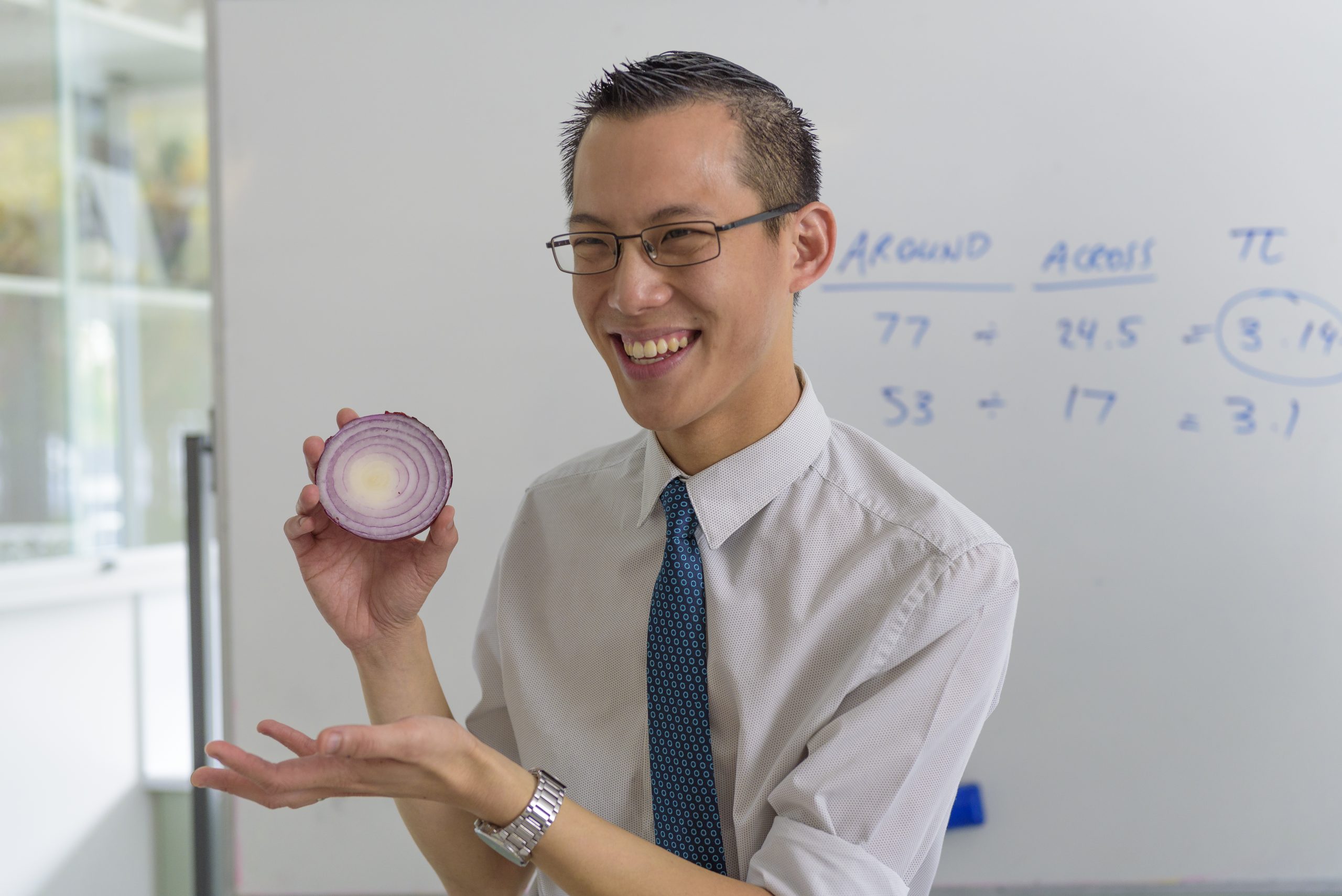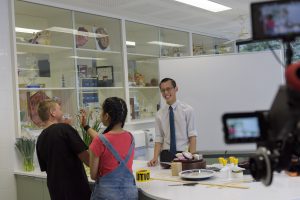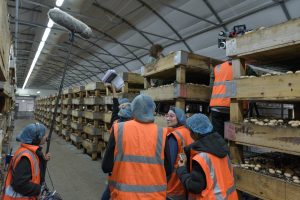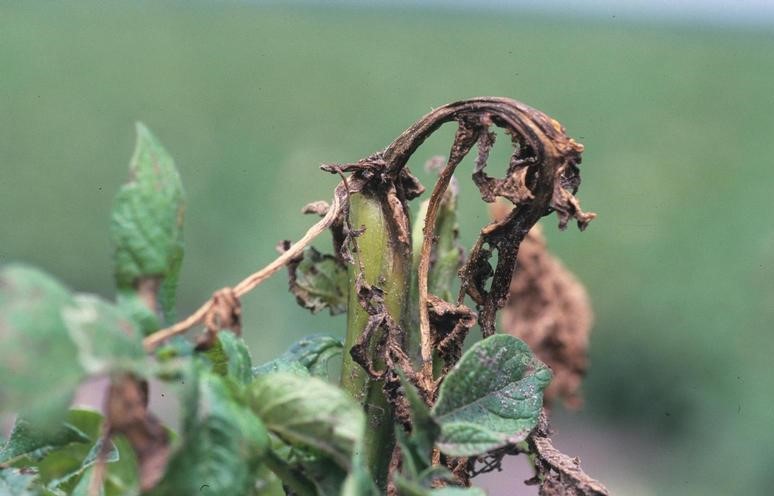
Tomato spotted wilt virus: A very sporadic, but destructive potato disease
17 April 2020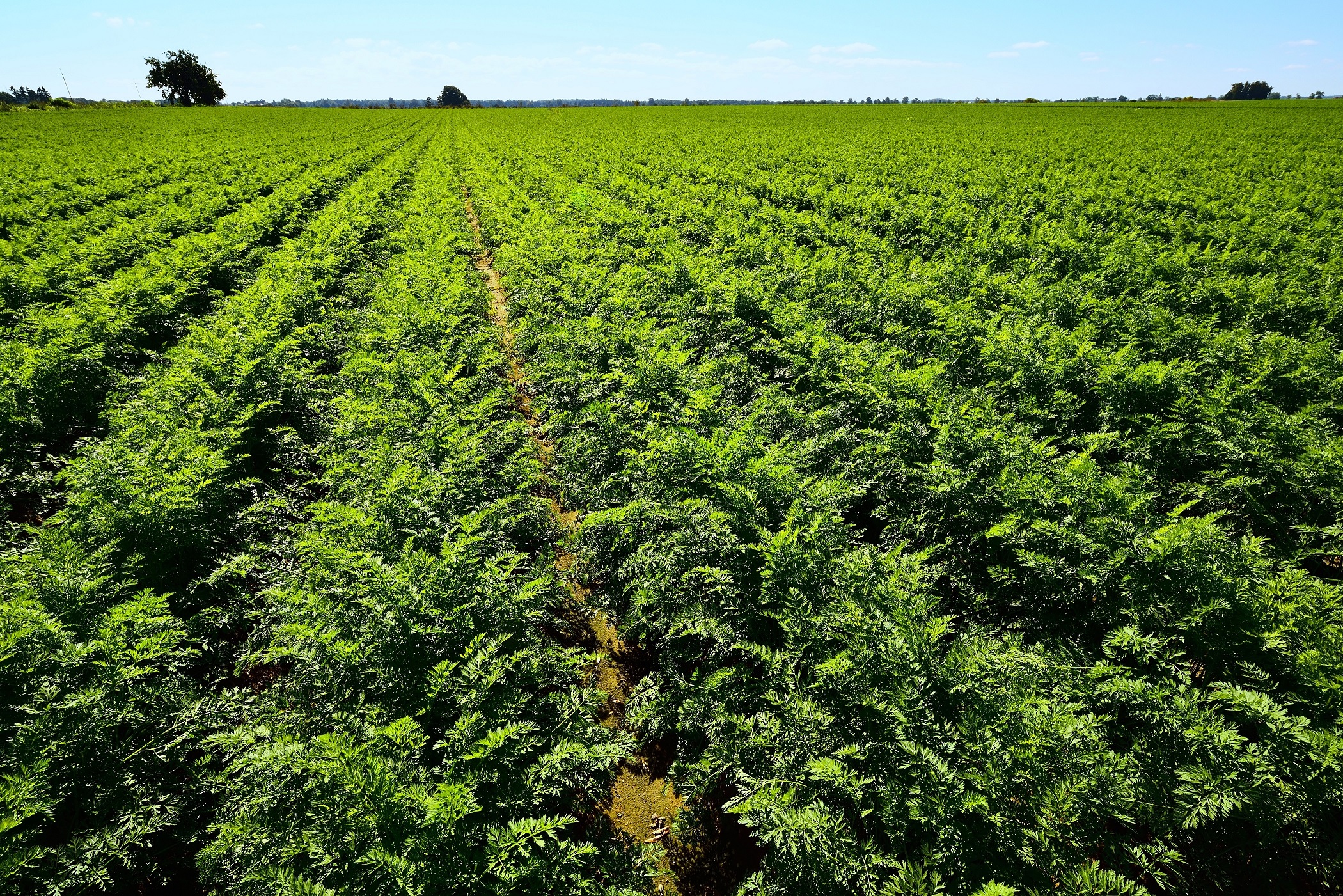
Fusion farming focus of Scott’s scholarship report
17 April 2020‘Phenomenom’ is a digital toolkit for Australian teachers that aims to help engage children with vegetables and cultivate their curiosity around fresh food. It includes a suite of springboard webisodes, audio and PDF lesson plans, and has continued to expand its reach into classrooms and demonstrate impact over 12 months to November 2019.
With only six per cent of Australian children reaching the Recommended Dietary Intake of vegetables, a project was commissioned by Hort Innovation in 2018 to develop and deliver digital food education resources that promote healthier attitudes to food, with a focus on changing children’s perceptions of vegetables.
Since its launch in May 2018, ‘Phenomenom’ has produced 26 springboard webisodes as well as 59 lesson plans and resources for teachers, and eight episodes of its new podcast for families, Nomcast.
The project’s success was recognised when it took home Best ‘Healthy Eating’ Campaign of 2018 at the Parents’ Voice Fame and Shame Awards. These awards recognise campaigns that promote healthy food and activity to children in a fun and appealing way.
Educational opportunities around perceptions of, and aversions to, vegetables through digital media (VG16018) is a strategic levy investment under the Hort Innovation Vegetable Fund.
Veggies + maths = success!
Over the past 12 months, Phenomenom has received investment from the mushroom and onion industries that allowed the project to create a webisode featuring Australian secondary school teacher Eddie Woo.
Eddie is globally known for his online mathematics lessons published on YouTube, with nearly 700,000 subscribers to his channel.
The latest Phenomenom video incorporated the vegetable commodities and combined them with maths in a fun, easy-to-learn way.
The mushroom and onion industry-funded project added to the existing vegetable levy-funded project with one springboard webisode, nine PDF lesson plans, podcast series, teacher guidebook and workshops with teachers. Not only do the new materials expand the reach of the original materials, they also frequently reference vegetables.
“For example, with onions we thought the students might want to explore the notion of diameter and radius and concentric circles, so we created an episode around that. We also explored the magical world of the mushroom underground within that same episode with a fantastic animated sequence,” Project Lead Alice Zaslavsky said.
This webisode is now online; however, it has had far greater reach beyond the internet with the episode screening on all Qantas flights as well as being played at Federation Square during the Little Food Festival, a children’s food festival held in Melbourne.
“The Little Food Festival was held over the AFL Grand Final week in Melbourne, so there was a lot of foot traffic. People were getting to see the episode and experiencing what Phenomenom is all about,” Alice said.
Further opportunities
Vegetable growers are steadily becoming more involved with Phenonemom.
At the time of writing, the Ag Heroes video series was being created, which focuses on opening the world of agriculture up to secondary students in Years 9 and 10 to show them the opportunities that exist within the sector.
So far, Jessica Toth from Costa Mushrooms has spoken about her passion for growing, while in the veggie space, siblings and growers Hope and Jake Shadbolt from Scotties Point Farms were set to be filmed in November 2019.
Academia is also taking notice of this project. Alice and her team have been approached by universities, which are interested in researching its implementation and approach to teaching.
“We’re looking to partner with Monash University and the Australian Research Council to create an implementation study and a research study around how Phenomenom can be built upon, and how we can make it even bigger,” Alice said.
Phenomenom is also working with the ABC to develop further education tools around native foods following a successful segment featuring Wardandi Bibbulmun woman Aunty Dale Tilbrook.
“I think there is so much more that we can explore in that area. Connecting kids back to country will pique their interest in other ways – not only about vegetables, but also about how they can be more sustainably-minded and more conscious consumers,” Alice said.
A learning curve
In March this year, Alice became a mother for the first time with the arrival of her daughter Hazel. Since then, she sees the Phenomenom project differently as it is now closer to home.
“I think being a mother now has both enriched my understanding of Phenomenom and the project moving forward; but it’s also gone another way – Phenomenom has enriched my own understanding of what it means to help to engage young people, including babies, with vegetables,” Alice said.
“From our research, we have learnt that one of the most important things for children to see is positive role modelling from whoever is around them enjoying vegetables. From about two months old, Hazel was leaning in to see what we were eating, and so as soon as she hit six months old (because that’s the recommended age for introducing vegetables), we’ve been popping a new vegetable on her plate every day.”
Alice explained her involvement, and the reasons that this project is close to her heart.
“The reason why this is meaningful to me is because I believe that everybody benefits from learning to love vegetables – beyond feeling better, you’re learning to explore new things and you get out of your comfort zone,” she said.
“They’re really important attributes for a person to have and I think that for a child to build up their resilience through something like food – they have the option to eat something at least three times a day, and for them to use it as an opportunity to not only nourish themselves, but also to push themselves, is really exciting.”
Meanwhile, Alice recently attended a round-table discussion, hosted by the Victorian State Health Minister, which focused on childhood obesity.
“To be able to get to that point felt like an achievement within the project because it shows that even at a decision-maker level, it is seen as something worthwhile and worth listening to,” Alice said.
“It was also good to hear about what’s going on in this space. These days, it feels like the conversation is moving forward. Rather than talking about the doom and gloom, it’s actually about cultivating more. We need to offer more beyond just saying, ‘vegetables are good for you’ – and I think that is what Phenomenom does.”
Find out more
For more information, please visit the Phenomenom website.
Nomcast podcasts can be found here.
This project has been funded by Hort Innovation using the vegetable research and development levy and contributions from the Australian Government.
Project Number: VG16018

